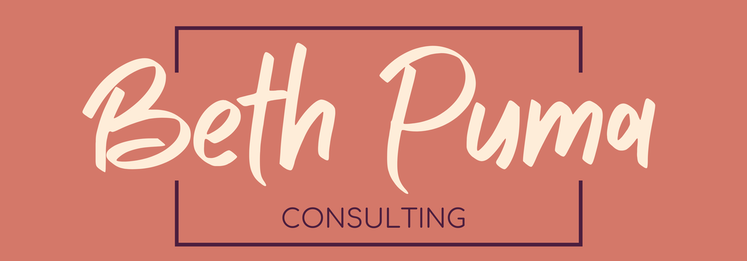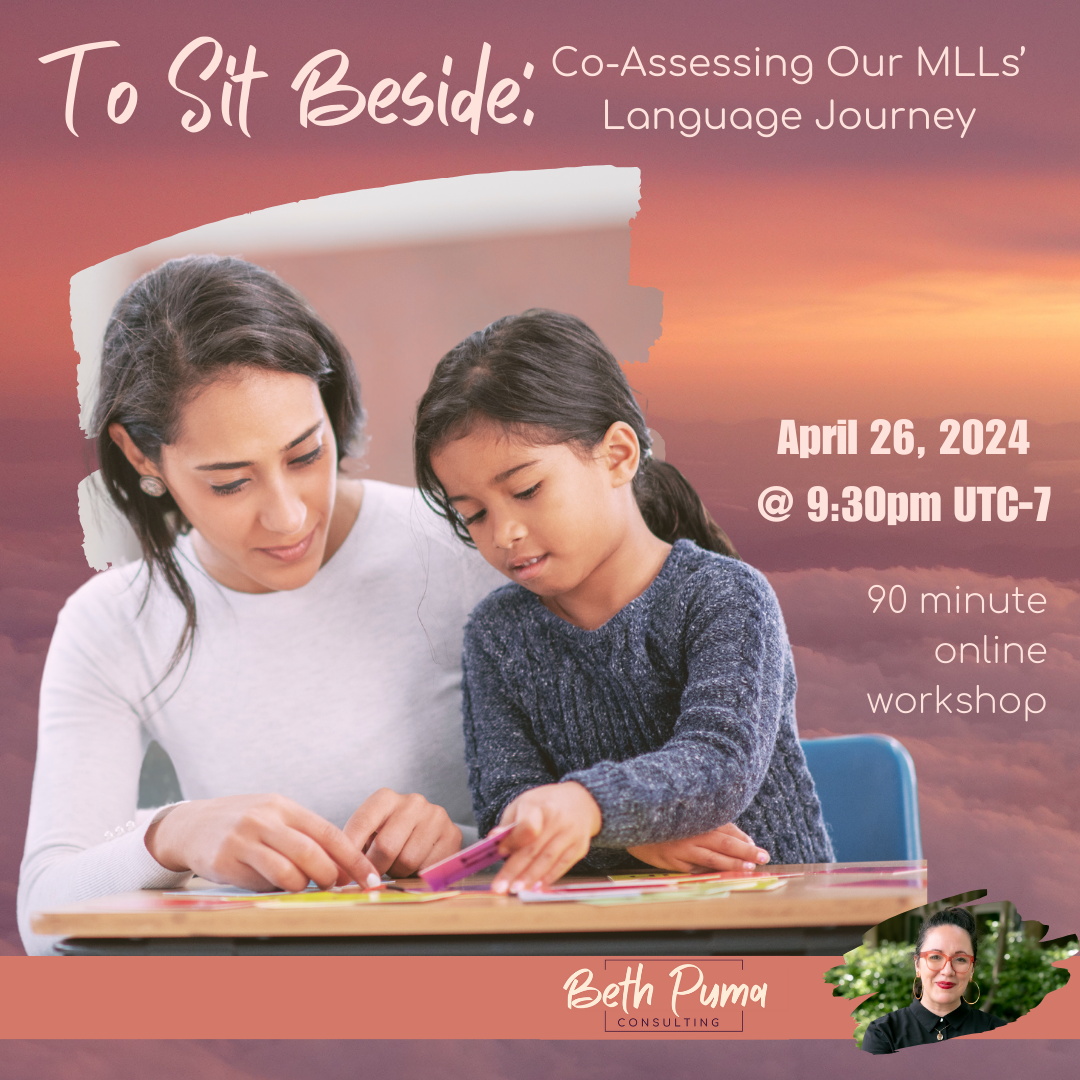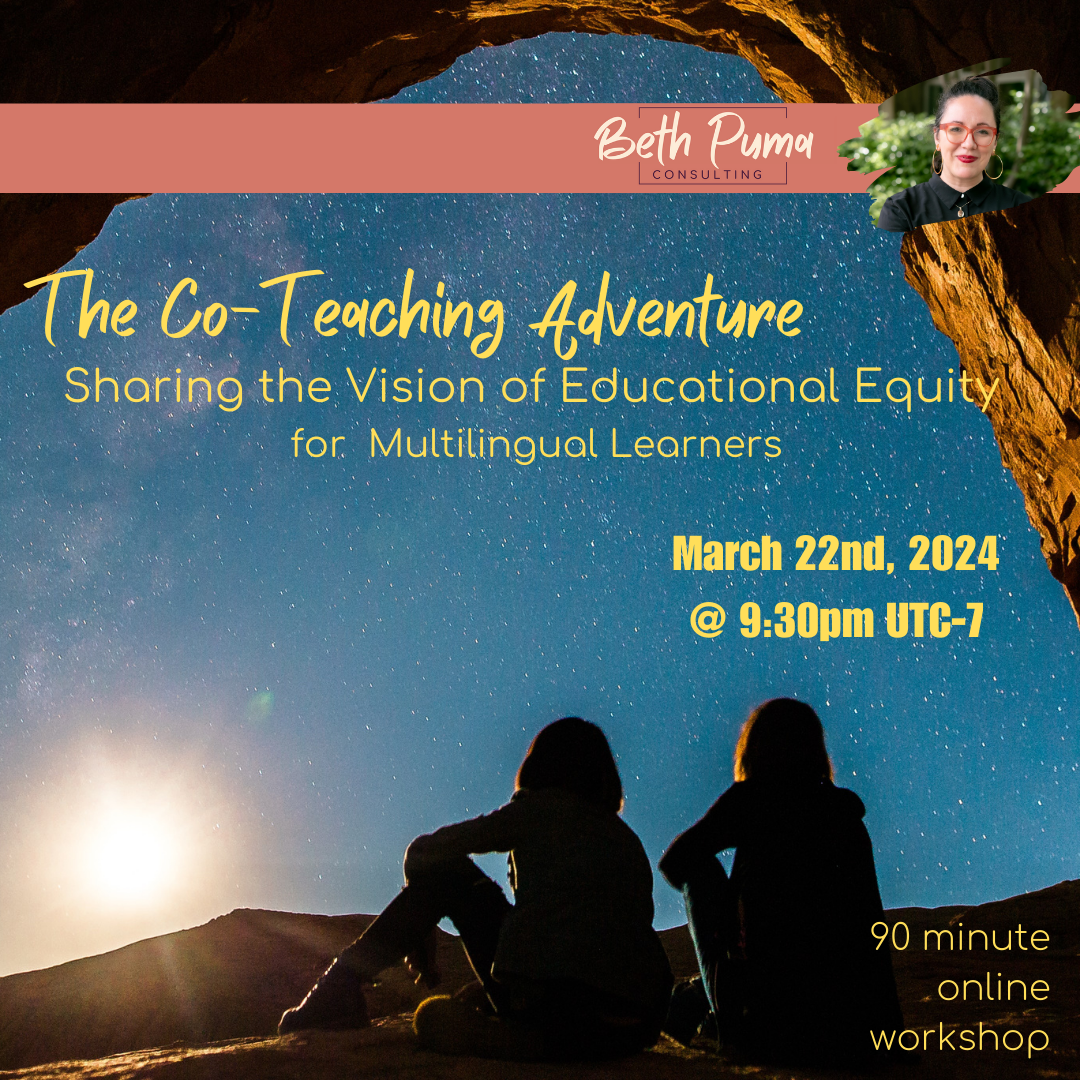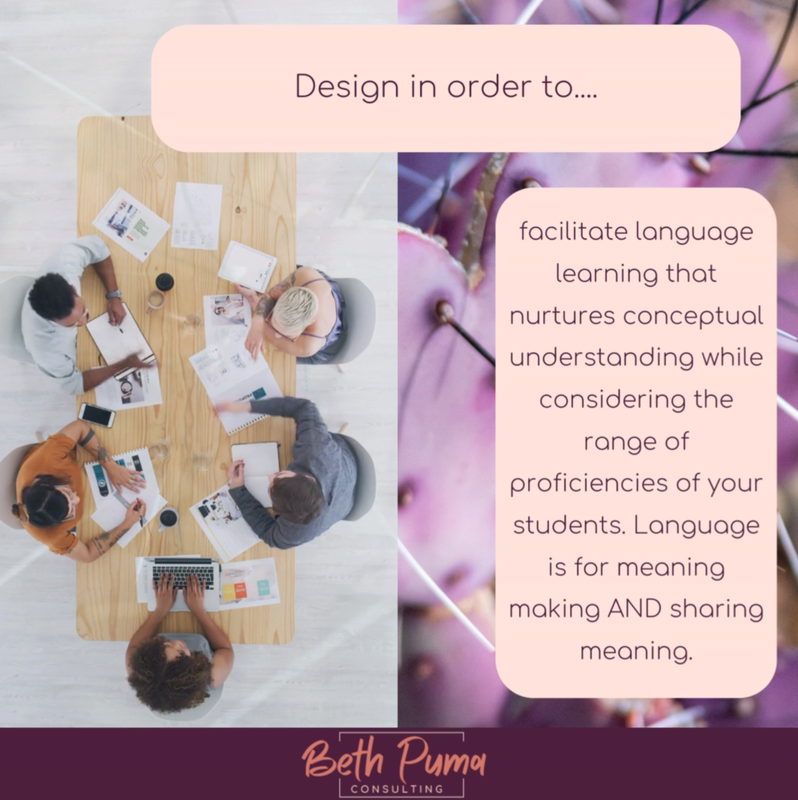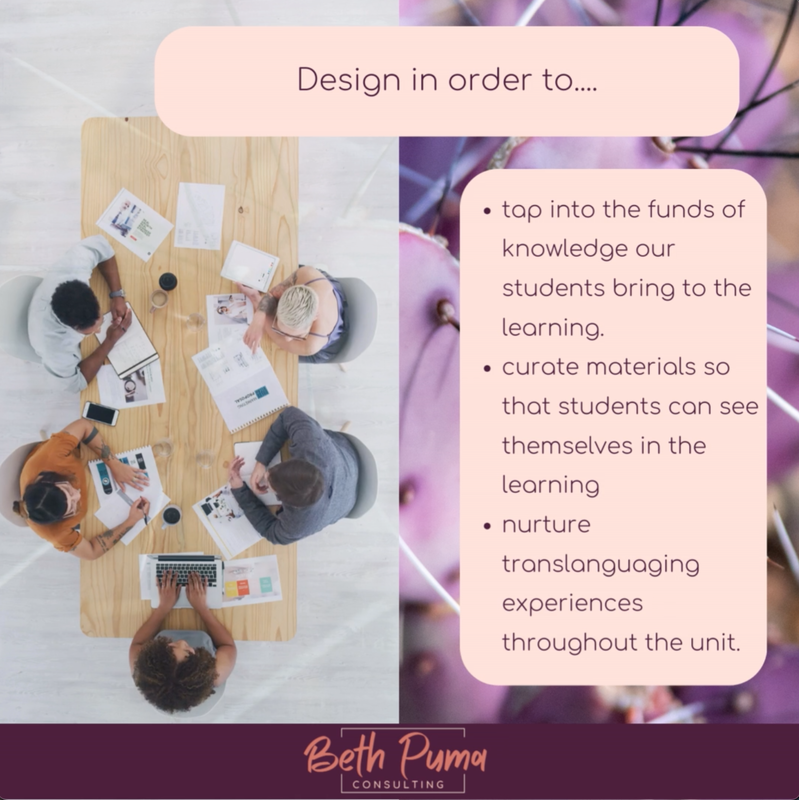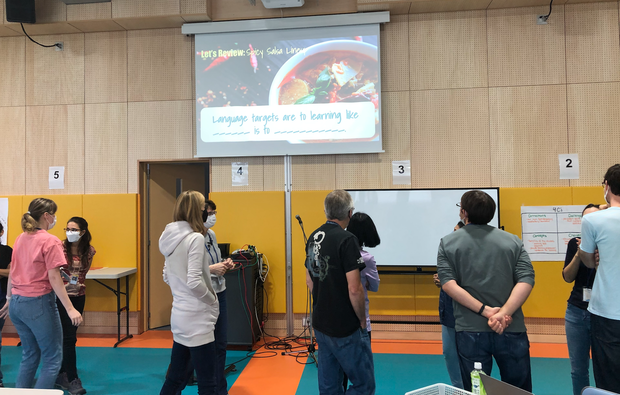|
Join me for an interactive online event where we will explore ideas of co-assessment of our multilingual learners' language journeys.
0 Comments
I seriously love co-teaching. I love the collaboration. I love the design questions. I love the joy. It truly is an adventure! This workshop will equip participants to answer the following questions:
Head on over to EventBrite to grab your tickets today! 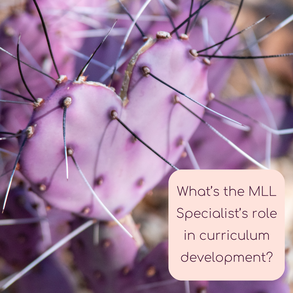 I know an a lot of MLL Specialists that are reluctant to attend or contribute to curriculum focused team meetings. I even know a few that throw their hands up with exasperation saying "they are a waste of my time." Yet, a strong curriculum is so crucial to strong instruction. A strong curriculum helps our multilingual students immensely. while making co-planning meetings more efficient. Curriculum is one of the key components of the multilingual ecosystem that we discuss in my professional learning workshops. Schools with a strong commitment to equity and their multilingual learners ensure collaboration time is embedded in their timetables for teaching teams and MLL specialists. Why is it then, that so many MLL Specialists experience reluctance, exasperation, or even trepidation when it comes to sitting down with colleagues for the unit design process? That's a question I often explore in coaching, since the answer(s) can be complex and contextualized. For now in this blog post I will share what I believe our role is at the table and possible ways to engage with questions. 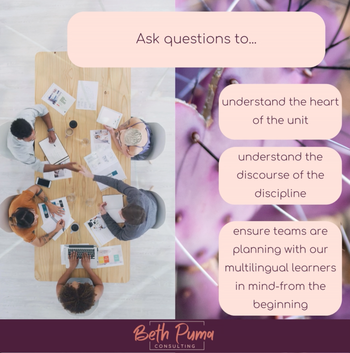 Participating in curricular meetings is important for MLL specialists to seek to understand the grade level content. They do not need to be content area experts of course, nor should they be expected to. Curricular meetings are a good time to ask questions to seek to understand in order to aid the design process with a clear eye on the horizon. Its a great time to ask questions like:
We immerse our learners in language rich classrooms, but remember part of the MLL Specialists job is to facilitate language learning. I find this is something, when done right, that all students benefit from.
As MLL Specialists we have a deep commitment to linguistic equity. We have a deep understanding of bilingualism and the role culture and identity play in our students lives. We can offer contributions to the unit to ensure that our students are seen and see others like them while nurturing their multilingual identity.
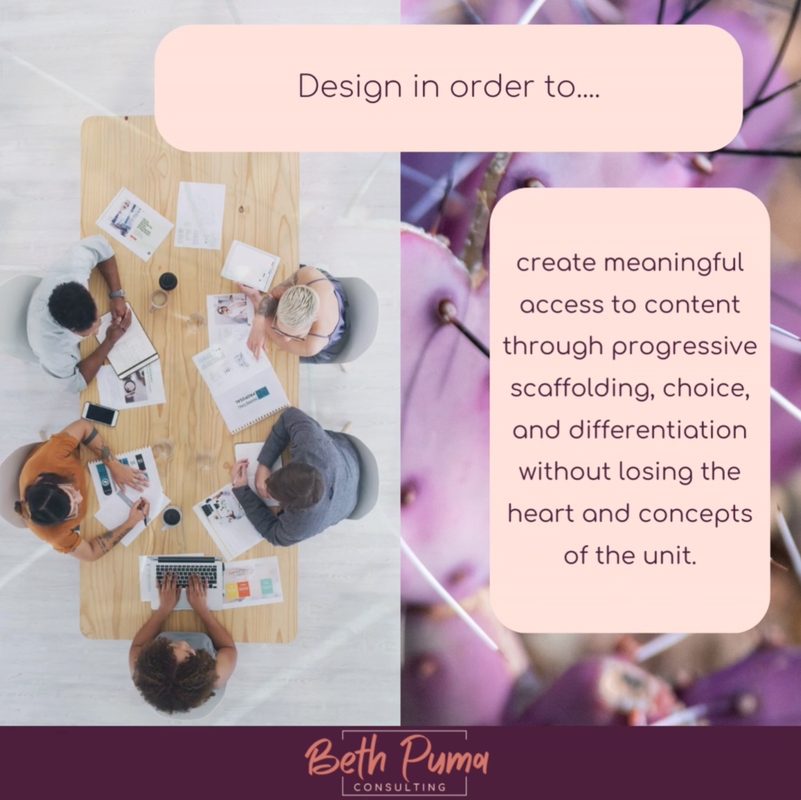 Creating access is an important role that many MLL specialists play at the curricular table. Just be careful! This isn't the only role. Questions we can ask of ourselves and design for include:
MLL Specialists are important participants in curricular design.Questions can be a quiet way of leading collaborative unit design conversations towards equity for our multilingual learners. Asking questions (even if answers aren't available...yet) also help develop a sense of collective efficacy around all of our students' success. Asking questions helps chip away at deficit mindsets without being preachy. It also pushes MLL specialists beyond the "magic trick -here's strategies" mode that many of us can fall into.
Go forth and be brave MLL Specialists! Your colleagues depend on you for your insights. Your multilingual students are counting on you. If you are interested in exploring these ideas more and incorporating them into your practice reach out to schedule a coaching call today. Can I tell you something, that I am not particularly proud of?  Photo by Steve Johnson on Unsplash Photo by Steve Johnson on Unsplash I used to really not love math. I was no good at it. No really. Now as an adult, I know I am not supposed to say that, because it reinforces misconceptions and mindsets, that reinforces certain teaching methods, that reinforces mindsets and so on and so on. But as a child who went to school in the 90s, I can honestly trace my first panic attacks to a subtraction lesson, a fraction test, and later a timed multiplication test. (Also, I know I am dating myself here: is going to school in the 90s make me old or young? I'm not sure.) When I first started my career as an elementary school teacher, I mostly just turned a page of a workbook to keep up with my school's pacing calendar. I knew I was supposed to have students use manipulatives a lot, but I didn't really know how to do so in an impactful way. When I became a middle school humanities teacher, I was off the hook for a while. Until one year, through some unknown celestial event of higher enrollment and decreased staffing I had to teach a section of Grade 6 mathematics. I knew a little more by then about teaching and project based learning, but I still was very dependent on the adopted textbook. Oddly enough, after the first quarter benchmark testing (yes, it was one of those situations) my sixth grade math students had demonstrated the highest growth of any of their peers in our very large urban district. District officials came in to observe and ask me questions. Meanwhile, I was terrified that they would find out that I didn't actually know what I was doing or even deeply understand math the way I was supposed to. In retrospect, I do believe that my students' growth was due to my robust conferring practices, differentiated strategy group lessons, and mindset work that I had transferred from my Humanities workshop and elementary days. However, as sixth grade math went on- my own conceptual understandings certainly hit a wall. Knowing how to solve an algorithm only gets you so far. I was relieved when the year was over. When I moved overseas, post graduate degree, I started specializing as an English as an Additional Language teacher. At my school, an immersion school for multilingual students with an American high school curriculum, co-teaching was the expectation. This school had deeply invested in content and language integrated learning. Students were learning the English language alongside grade level expectations across the subjects. The stakes felt high. Many of our students were emergent bilinguals in 9th grade, with a curriculum gearing them for AP classes. I was the EAL specialist for the English, Social Studies, and Art Departments. Again, I was off the hook for a while, besides an occasional collaboration with a math teacher. At this point I had a fairly large toolbox for teaching vocabulary, but the upper level concepts of math that my co-teachers tried to explain to me gave me the sweats. As a co-planner my go to line was "I'm excited you love your content. I want to understand the gist, but what does a successful answer sound like? That will help me target the language our students need." At my next school. I was the EAL teacher in Grades 1-5, with 9 different co-teachers. Here I was, back in elementary school. It is through some of those co-teaching partnerships that I began to fall in love with math. For that I am grateful! I'll share more in my upcoming Part 2. Lots of strategies forthcoming! Like so many others, the pandemic shifted my practices of teaching and learning. As a teacher, I had to figure out ways to ensure students had meaningful, engaging, and interactive learning that nurtured their continued content learning, language acquisition, and connection. As a professional learning facilitator, I had to design for adult learning that was also meaningful, engaging, and interactive-with educators who were equally tired of screens and burning the candles at both ends. I adapted. I had to. It was my mission to make online professional learning workshops rich in discussion and resources, while also making it joyful and relationship driven. All that being said, it was such a delight to be back in person facilitating in-person professional learning workshops this past month. It was exciting to dust off some discussion strategies that could not transfer to online spaces. It was equally exciting to integrate new learning from online tools into the in-person spaces. Additionally, there are increasing opportunities for hybrid learning, I have a few upcoming this semester. Hybrid professional learning creates access in new and exciting ways.
How do I juggle the needs of the different spaces? Different learning spaces often need tailored strategies. What is the common thread? Joyful learning. Laughter. Reflection and collaborative conversations through cognitive dissonance and growth. Serving multilingual students is joyful. Transforming our practices and systems can be too. |
Beth PumaI am an MLL specialist, coach, and educational consultant that is dedicated to building a more transformative educational landscape that honors linguistic diversity and challenges societal paradigms. Archives
July 2024
Categories
All
|
